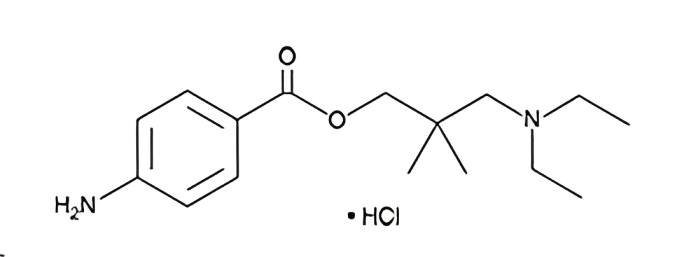One compound that has caught the attention of many in recent years is DMC, also known as Dimethocaine, a drug with similar effects to cocaine. In this article, we will explain DMC, its history, general information, dosage and administration, user reviews, and potential side effects.
General Information on DMC (Dimethocaine)
Let’s begin our DMC review by covering some general information about this drug. DMC, short for Dimethocaine, is a synthetic compound. It comes from the naturally occurring alkaloid cocaine. It’s a local anesthetic and stimulant with properties similar to those of cocaine but less potent. It’s been in the research chemical market since the early 2000s, and its growing popularity can be attributed to the fact that it’s one of the legal drugs available in some regions.
While DMC shares some structural similarities with cocaine, it is important to note that its potency is much lower. This makes it a popular choice for researchers and psychonauts who are interested in exploring the effects of stimulants without the risk of the severe side effects often associated with cocaine. However, the lack of thorough research on DMC’s long-term effects means users should use caution when experimenting with this substance. Please keep this in mind as you read through this research chemical review.
History of DMC (Dimethocaine)
The DMC research chemical was first created in the 1920s by a German pharmaceutical company as an alternative to cocaine, with the goal of creating a compound with similar local anesthetic properties but reduced addiction potential. However, it never gained widespread use in the medical community due to the development of safer alternatives like lidocaine and procaine. DMC re-emerged in the research chemical market in the early 2000s and has since garnered a niche following among those interested in exploring novel psychoactive substances.
The legal status of the DMC research chemical varies by country and can be subject to change as regulations evolve. In some countries, DMC may be legal, unregulated, or classified as a research chemical, while in others, it could be considered a controlled substance or be subject to specific restrictions. Be aware of the laws and regulations regarding DMC in your jurisdiction before obtaining or using the substance. If potential users are looking for legal highs via online vendors, it’s advisable to check local laws for any changes in legality.
Dosage and Administration
As with any research chemical, it is crucial to follow proper dosage and administration guidelines to minimize potential risks. Keep in mind that individual reactions to DMC may vary, so starting with a low dose is advisable. The following information is provided for educational purposes only and should not be considered medical advice.
Oral Administration
Orally ingesting DMC involves dissolving the substance in a liquid and drinking it. The recommended starting dose is between 50-100 mg, with experienced users sometimes taking up to 200 mg. The onset of effects usually occurs within 30-60 minutes, with the experience lasting around 2-4 hours.
Nasal Insufflation
Snorting or “insufflating” DMC involves finely grinding and inhaling the substance through the nostrils. This method provides a faster onset of effects, usually within 5-10 minutes. Recommended doses range from 30-60 mg for beginners and up to 100 mg for experienced users. The duration of effects is typically shorter, lasting around 1-2 hours.
Vaporization
Vaporizing the DMC research chemical involves heating the substance to produce vapor, which is then inhaled. This method results in an even faster onset of effects, usually within 1-2 minutes. Recommended doses range from 10-30 mg, with effects lasting around 30-60 minutes.
Suppository
DMC may also be used as a suppository by placing the substance into the rectum. This method results in a slower onset of effects, taking around 20-40 minutes to manifest. However, users have reported experiencing more potent and longer-lasting effects with this method. Suggested doses range from 50-100 mg, and the overall experience may last 4-6 hours.
Redosing
Exercise caution when redosing since it increases the risk of side effects and negative experiences. Allow 2-3 hours between doses, and monitor your response to the substance before deciding whether to redose.
User DMC (Dimethocaine) Reviews
By looking at first-hand reports, we can better understand what to expect from the DMC research chemical, as well as the potential risks and benefits. However, remember that user reviews are completely subjective. Every user may have a different experience depending on many factors.
Onset of Effects
Users typically report a relatively fast onset of effects with DMC, ranging from 5 minutes when insufflated or vaporized to 30-60 minutes when taken orally or as a suppository. The duration of the experience may also vary depending on the method of administration.
Increased Energy
Many users of DMC report experiencing a surge of energy after taking the substance. This heightened energy level is a common effect of stimulants, which act on the central nervous system to increase alertness and physical activity. Users may feel more motivated to engage in tasks, participate in social situations, or exercise.
Mild Euphoria
The DMC research chemical has been known to produce a sense of mild euphoria in some users. A general sense of well-being, happiness, and contentment characterizes this pleasant feeling. The euphoria experienced with DMC is normally less intense than that associated with more potent stimulants like cocaine, making it a more manageable experience for some users. The mild euphoria can also add to the increased sociability reported by DMC users, as it can create a more positive and open mindset.
Focus
Another effect of DMC that users often report is an increased ability to focus. Stimulants like DMC can enhance cognitive function by increasing the availability of certain neurotransmitters, such as dopamine and norepinephrine, in the brain. This increase in neurotransmitter levels can lead to improved concentration, allowing users to stay on task longer.
Anticlimax (“Comedown”)
As the effects of DMC wear off, users may experience a gradual comedown characterized by fatigue, irritability, or mild depression. Proper hydration, nutrition, and rest can help mitigate these effects.
Potential Side Effects of DMC (Dimethocaine)
While DMC has a lower potency than cocaine, it is still important to be aware of the potential side effects associated with its use. As a research chemical, DMC’s long-term effects are poorly understood. Exercise caution when experimenting with this substance.
- Increased heart rate
- Elevated blood pressure
- Anxiety
- Paranoia
- Insomnia
- Nausea
- Loss of appetite
- Sweating
- Tremors
- Headaches
- Vasoconstriction
As with any research chemical or psychoactive substance, the safety of users should always be the top priority. By taking the necessary precautions and staying informed, you can minimize risks and ensure a more enjoyable and safe experience.


